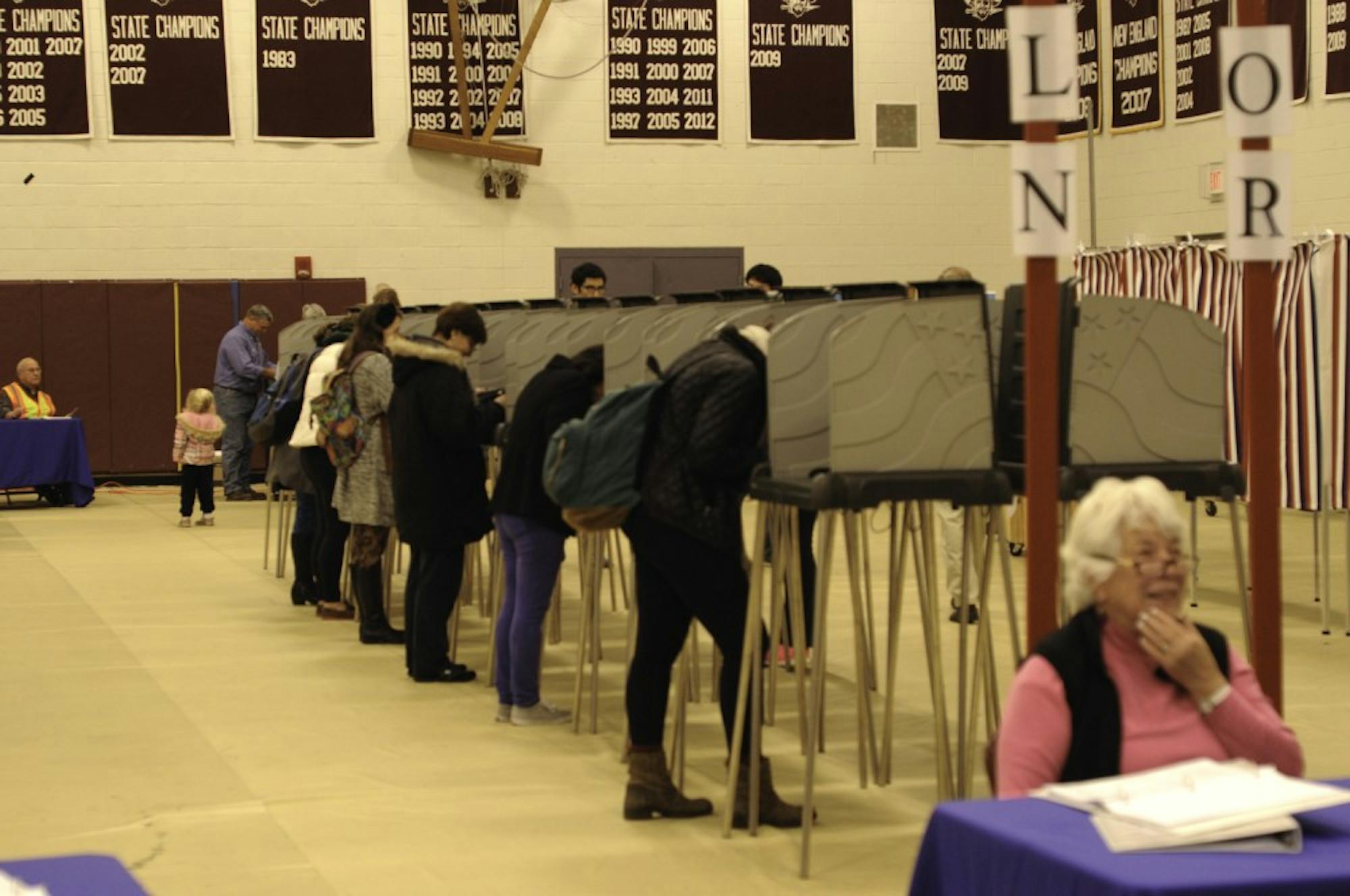Sen. Jeanne Shaheen, D-N.H., defeated Republican challenger Scott Brown in a tight race Tuesday. Gov. Maggie Hassan, D-N.H., was re-elected to a second term as Governor, beating Republican businessman Walt Havenstein. Rep. Ann McLane Kuster ’78, D-N.H., defeated Marilinda Garcia to keep her seat in the House of Representatives, and Republican Frank Guinta, beat Rep. Carol Shea-Porter, D-N.H., to regain the seat he lost to her in 2012.
Shaheen held on as Republicans gained control of the Senate — winning Democratic seats in Arkansas, Colorado, Iowa, Montana, North Carolina, South Dakota and West Virginia — and expanded their majority in the House. The race in Alaska had not been called as of press time.
Three Dartmouth alumni won gubernatorial races on Tuesday. Defeating incumbent governors, Republican Bruce Rauner ’78 and Democrat Tom Wolf ’71 will serve as the next governors of Illinois and Pennsylvania, respectively. They join Gov. John Kitzhaber ’69, D-Ore., who was re-elected.
In addition to Kuster, Rep. Mike Capuano ’73, D-Mass., who ran uncontested, and Rep. John Carney ’78, D-Del., won their respective congressional races.
Government professor Joseph Bafumi said the Democrats’ loss of the Senate majority significantly reduces Shaheen’s influence on policy.
“The question is not so much who is representing New Hampshire, but more so how the loss of a Democratic majority in the Senate would affect our politics,” government professor Bernard Avishai said. “If the Republicans were to get the majority in the Senate, unless the President and the legislature get some sort of amicability, it will feel like the same stalemate we have had for the past four years.”
The midterm elections represent a shift, with tides turning Republican, Avishai said. He said he believes that while Republicans claim the “government is broken,” their strategy of opposing popular legislation led to the gridlock in Congress for the past four years.
A Republican majority in both the Senate and the House with a sitting Democratic president could continue this gridlock, likely leading to a legislative strategy of crafting bills Congress expects the president to veto, government professor John Carey said. Carey said that in the lead-up to the 2016 elections, repeated vetoes would alienate key sectors of the electorate that supports the Democratic Party, allowing Republicans to shift blame to President Barack Obama.
“As we’ve seen in the last couple of years, it’s hard to get anything to the president’s desk,” Carey said. “But even if we were to have a thoroughly Republican Congress, the legislation coming from it would likely not be passed. They won’t have a veto-proof majority, so there’s still gridlock in the sense that there won’t be new policies.”
This year’s midterm elections will be essential in setting up the landscape for 2016, Bafumi said. He said that despite losing the majority in the Senate, Democrats have a good chance of regaining it in 2016.
Depending on whom Republicans nominate for the presidential race, the U.S. will likely continue to see a divided government between the legislature and the presidency, Bafumi said.
Shaheen’s election will allow Democrats to further policy even without a majority, Bafumi said. He said that these policy goals include supporting health care, social welfare and minimizing defense spending.
The primary concerns for the New Hampshire constituency are focused on jobs and employment, Bafumi said. He said that in her upcoming term, Shaheen will likely dedicate attention to supporting small business owners, who form a significant portion of the constituency. She also will advocate for the continuing operation of military bases in the state, he said.
Though most Dartmouth students are not New Hampshire natives, a number of students voted yesterday. College Republicans and Democrats organized shuttles from campus to the polls at Hanover High School.
College Republicans vice president Paul Ghazal ’17 said he found the high turnout of Dartmouth students at the polls encouraging, regardless of political affiliation. The close margin of the vote in the Senate race demonstrated how important every individual voter is, he said.
Nationally, Ghazal said, results exemplified American dissatisfaction with the status quo on issues such as foreign policy, even if the Republicans did not win the Senate seat in New Hampshire.
A fire alarm went off during the 6 p.m. hour at Hanover High, WMUR reported. Election officials kept the polls open temporarily after the alarm, and a judge ruled that the eight ballots cast during that period would be counted.
Five students interviewed from out of state expressed varying levels of familiarity with the election and candidates.
Clare Mathias ’18 , from Washington, D.C., said that although she was excited to vote in her first Senate race, she felt unfamiliar with New Hampshire politics and had only researched two of the candidates.
Alisa White ’17 , from upstate New York, stressed the need for Dartmouth students to vote in New Hampshire, even if they are from out of state.
“These are elections that can affect the Senate and the balance in Congress, which can in turn affect a lot of issues that students care about, from climate change to tax reform,” White said.




